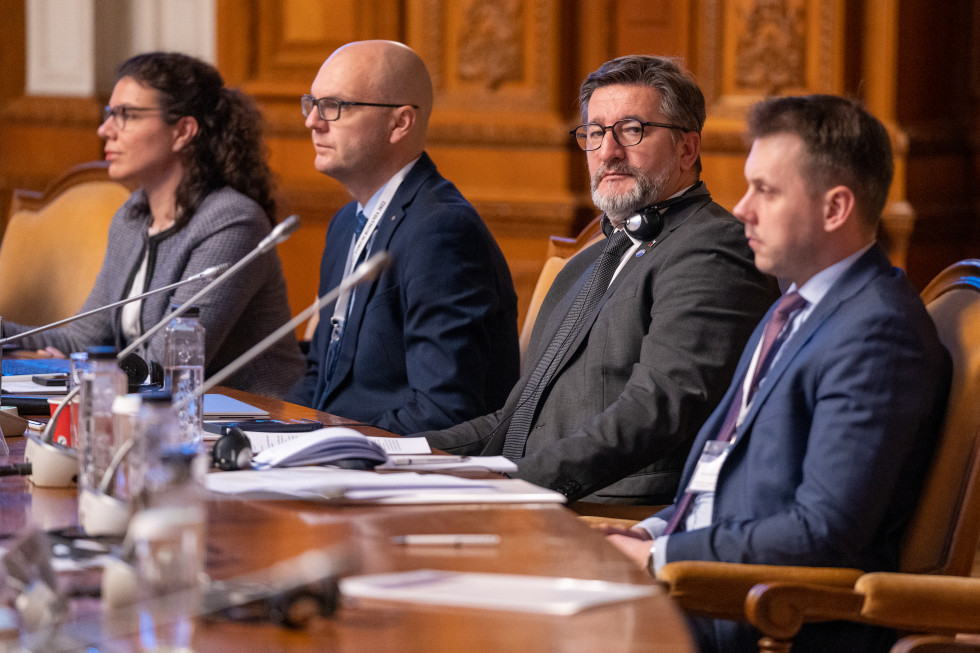State Secretary Lobnikar: Slovenia and the EU closely monitor the situation in Ukraine and the neighbourhood
The discussion focused on possible scenarios for the development of Russian aggression in Ukraine from a humanitarian and security point of view, as well as on response to major chemical, biological, radiological and nuclear incidents and relevant protection issues. They also discussed migration challenges and talked about the importance of identifying regional cooperation needs and measures to preserve security and stability in the Western Balkans and Moldova.
Yesterday, they discussed the consequences of Russian aggression in Ukraine. In terms of security, Slovenia has not seen considerable impacts of the war in Ukraine on the crime situation so far, but it will continue monitoring closely any changes in this regard. “Criminal groups are quick at adapting to new circumstances, so it is expected that they will exploit the consequences of the war in Ukraine to their advantage. It is important to prepare for this properly and to take decisive and effective preventive measures now." Participants agreed that an immediate EU response was key to building closer cooperation with Ukraine and Moldova, which needs to be further developed through the direct exchange of relevant data.
In the context of the discussion on the response to chemical, biological, radiological and nuclear threats, participants agreed that consistent and effective use of available mechanisms and tools is crucial. “In order to be as successful as possible, it is also important to adapt policies and strategies to the situation on the ground,” said Dr Lobnikar and, as an example of good practice, pointed out a protection drill on nuclear installations, which Slovenia was the first country in the world to carry out. The Slovenian Police received special recognition from the International Atomic Energy Agency (IAEA) for this security exercise. “We believe that conducting similar exercises at EU level could improve the preparedness of member states against such attacks,” said the State Secretary, and stressed the need for cross-border cooperation, involving the full scope of competent authorities and taking advantage of the support provided by international organisations such as the IAEA.
The second day of the session was held to discuss a joint response to increased migration flows in the Western Balkans and the expected increase in migration from Ukraine as a result of the escalation of war. Romania, Bulgaria and Croatia stressed the urgency for the enlargement of the Schengen area to ensure more effective border checks at the external Schengen borders. Support for this enlargement was also highlighted by the representative of the European Commission. State Secretary Lobnikar stressed the importance of the exchange of information between partner countries to prevent migrant smuggling and brought attention to the meeting of police chiefs within the framework of the Brdo Process to be organised by the Slovenian police in Portorož on 17 and 18 November.
The Salzburg Forum was founded in 2000. Its member states are Austria, Bulgaria, Croatia, the Czech Republic, Hungary, Poland, Romania, Slovakia and Slovenia.
The Salzburg Forum focuses on strengthening operational cooperation in Central Europe, joint lobbying in EU policy-making and the implementation of a common external strategy, with a particular focus on neighbouring countries.

State Secretary dr. Branko Lobnikar | Author Ministrstvo za notranje zadeve Romunije

